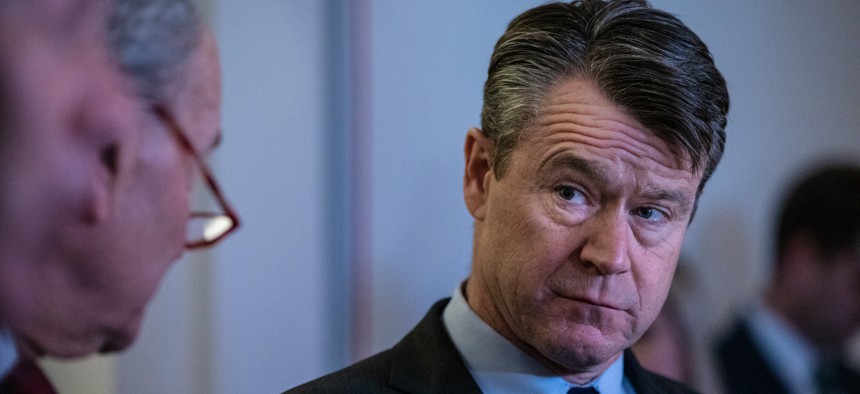Lawmakers request extra $10M for NIST AI research

Sen. Todd Young, R-Ind., and three other senators sent a letter to the Senate Appropriations Committee calling for the approval of $10 million to fund NIST's U.S. Artificial Intelligence Safety Institute. Anna Rose Layden/Getty Images
Four senators sent a letter to leadership on the Senate Appropriations Committee encouraging more funding for NIST’s efforts to standardize and test AI-centric technologies.
Four senators are calling for their fellow lawmakers to approve additional funding to help establish the National Institute of Standards and Technology’s U.S. Artificial Intelligence Safety Institute, as part of fiscal 2024 funding legislation.
The letter, sent Friday and signed by Sens. Todd Young, R-Ind; Martin Heinrich, D-N.M.; Mike Rounds, R-S.D.; and Maria Cantwell, D-Wash., asks leadership on the Senate Appropriations Committee to allocate $10 million to set up the USAISI, which was born from international discussions in November 2023 at the AI Safety Summit in the U.K. The four senators argue that in order for the U.S. to maintain a competitive leadership role in setting universal safety standards for artificial intelligence — a key process that will shape competition in both ethical AI innovation and market dominance — more money is needed to support NIST’s research.
“By fostering an environment of collaboration, the institute will facilitate the exchange of ideas and knowledge, leading to more comprehensive and effective innovation and safety policies,” the letter reads. “If funded at $10 million for FY 2024, it is our understanding that NIST would use this initial funding to bring on additional staff, accelerate its work on testing environments, fund joint research partnerships, and support the coordination of private sector engagement in USAISI’s work.”
The extra federal funding would facilitate bringing on experts in red team testing for specific AI softwares to evaluate safety and cybersecurity protocols. It would also form a NIST-led Joint Research Center and support the USAISI Consortium, the latter of which will help integrate new AI-based technologies and systems in industry and society.
Congressional leaders reached an agreement Sunday to fund the federal government for the rest of 2024 and avert a looming shutdown, though the House and Senate will still have to pass legislation to codify the deal by the initial Jan. 19 expiration date.






